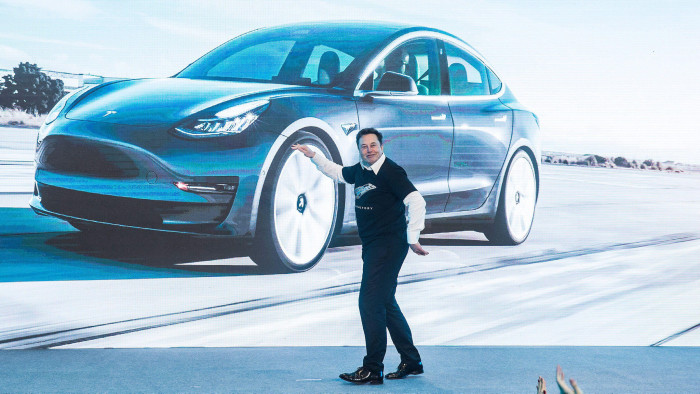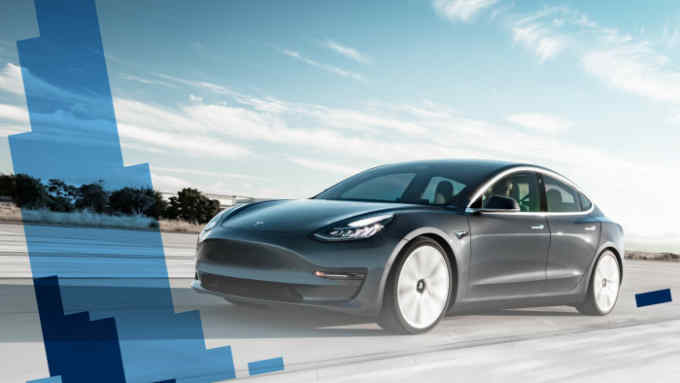Tesla’s rise has sparked an electric revolution

Roula Khalaf, Editor of the FT, selects her favourite stories in this weekly newsletter.
How much is Tesla, the electric carmaker, worth? The answer to that question has fluctuated wildly over the past couple of years as the company’s critics have taken their best shot. These detractors are legion, ranging from those who think its brilliant but erratic chief executive Elon Musk is a fraud, all the way through to the officers of the Securities and Exchange Commission, who in 2018 censured and fined Mr Musk for playing fast and loose with normal stock market disclosure rules. Despite these slings and arrows, however, the most rapid change in Tesla’s stock market value has come in the past two months. Since November, the shares have more than doubled, leaving those who doubt Mr Musk and his company dumbfounded.
The rapid rise has pushed Tesla’s stock market value past $100bn, more than the combined share value of Detroit’s royalty, General Motors and Ford. It has even surpassed that of Germany’s Volkswagen, the biggest carmaker by volume. Mr Musk’s recent stock market success has won him new admirers, including President Donald Trump, who declared him a “genius” and likened him to Thomas Edison. It was a bold comparison but Mr Musk deserves credit for establishing a pure electric brand in an industry notorious for its barriers to entry. There are questions over how sustainable Tesla’s valuation is: the company turned cash positive in the last quarter but it still does not make many cars (367,500 last year compared with VW’s 11m). The $100bn price tag is, nevertheless, a vindication of Mr Musk’s vision.
The South African-born entrepreneur has used a combination of salesmanship, ruthlessness and sheer chutzpah to achieve his ambition for Tesla, first outlined in a 2006 “master plan”: to expedite the move from a “mine-and-burn hydrocarbon economy” towards one that is “solar electric” by making “an electric car company without compromises”. Along the way, Mr Musk has invested his own money or tapped personal connections to keep the business solvent during turbulent times. Since going public in 2010, Tesla’s growth has been fuelled by its continued access to capital, either through issuing new shares or taking on new debt. Mr Musk’s personal brand has been both a help and a hindrance. His unpredictable behaviour has improved, but the effectiveness of governance remains unproved.
Despite some scepticism about the sustainability of Tesla’s soaring valuation, the company has met key milestones: deliveries of its breadwinner Model 3 rose to nearly 301,000 in 2019 from 146,000 in 2018, and a new Chinese factory has begun production. Not withstanding share price volatility, the outlook in the short to medium term is positive. Tesla continues to benefit from its early mover advantage; traditional carmakers have yet to come up with anything competitive. VW’s CEO recently warned the German company would have to “slaughter some sacred cows” and transform itself into a technology company to survive the upheaval in the industry.
Tesla believers, however, would do well to entertain some doubt. History is littered with examples of dominant founders who over-reached themselves, as well as ones who, like Steve Jobs of Apple, built lasting businesses that survived without them. Mr Musk’s ambition knows no bounds: not just electric cars, but revolutions in solar power, tunnelling, public transport, commercial space exploration and, naturally, a colony on Mars, are all on the agenda. But building Tesla into a profitable mainstream car company is still Mr Musk’s best shot at a truly enduring legacy.
Letter in response to this editorial:
Musk has overhyped Tesla’s autopilot feature / From Antonio Avenoso, Brussels, Belgium

Comments